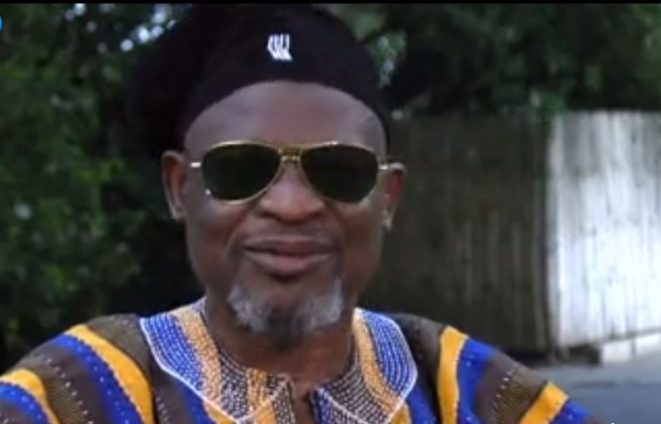The Member of Parliament for Sagnarigu, Alhassan Bashir Alhassan Fuseini has described as politically motivated, the Supreme Court’s ruling that a Deputy Speaker can vote while presiding over proceedings of the House.
He accused the Supreme Court of reducing “themselves to political appendages” by the verdict on Wednesday.
“We say from the onset that this is a shameful day for our democracy. That is a very farcical, shameful, politically motivated ruling by the Judiciary, the Apex Court of the land,” he noted.
He said that the Supreme Court being referred to as the Highest Judicial body of the land is “just theory”, adding that “in practice, their practice, their conduct doesn’t show so, and it’s indicating clearly by the ruling that they are consistently churning out.”
Mr. Fuseini noted that Article 102 clearly indicates that “even apart from the person presiding, the quorum is constituted by one-third of members on the floor.”
The Sagnarigu MP said although it has been mandated, as the organ of government, with the power to interpret the law, it does not mean the Supreme Court should “misinterpret the constitution or twist the law to suit its own political interests.”
Mr. Fuseini stated that the ruling by the Apex Court is not in the interest of Ghana’s democracy, therefore, must be challenged.
“I will tell you that if it’s allowed to go, they will subvert our democracy process because it doesn’t mean that because you have the authority to interpret the law, you can interpret the law anyhow,” he noted.
He added that the Minority in Parliament would resist anything that flouts the Constitution.
Meanwhile, the Minority Leader in Parliament, Haruna Iddrisu has criticised the Supreme Court’s ruling.
Speaking on the Joy FM’s Midday News on Wednesday, he said the ruling is a travesty of parliamentary justice.
“This ruling of the Supreme Court, we are not surprised, but we are utterly disappointed in the Supreme Court which is determined to support a struggling President with an ailing economy. This ruling of the Supreme Court can at best be described as judicial support for e-levy…to set aside Parliament standing orders, is a serious travesty of parliamentary justice,” he said.
Background
On Wednesday, March 9, the Supreme Court ruled that a Deputy Speaker of Parliament can be counted during the formation of a quorum for parliamentary decision-making and participation in voting while presiding.
The Court presided over by Justice Jones Dotse, therefore, affirmed the approval of the 2022 Budget without NDC MPs’ participation.
Private Legal Practitioner Justice Abdulai filed the case against the Attorney General.
He had asked the Supreme Court to interpret Articles 102 and 104 of the 1992 Constitution and declare the action of Mr Osei Owusu as unconstitutional.
He also wanted the Supreme Court to declare the whole proceedings in Parliament on November 30, 2021, which led to the passage of the 2022 Budget as unconstitutional, insisting the Deputy Speaker should not have counted himself as an MP when he presided over proceedings.
However, on behalf of the state, the Attorney-General (A-G), Godfred Yeboah Dame, argued that no express provision in the 1992 Constitution stops a Deputy Speaker presiding over proceedings from voting or counting himself as part of MPs present to form the right quorum.
He argued that the quorum in Parliament formed under Article 102 is different from the quorum formed under Article 104 of the 1992 Constitution.
He stated that the quorum under Article 102 is for the conduct of business in Parliament, and that is why Article 102 provides that it should be one-third of members.
“Given that Parliament presently is made up of 275 members, the quorum under Article 102 for the conduct of its business is 92 MPs,” the A-G submitted.
According to the A-G, based on the clear provision of Article 102, any person presiding, either the Speaker or Deputy Speakers, is precluded from being part of that quorum.
On the other hand, the A-G believed that the quorum under Article 104 (1), which deals with the determination of matters through voting in Parliament, requires at least half of all MPs, and such a quorum is not the same as the one in Article 102.
Mr. Dame contended that unlike Article 102, which precludes a “person presiding” from being part of the quorum, Article 104 (2) precludes explicitly “The Speaker”.
The A-G, therefore, held the position that only the person elected as “The Speaker” of Parliament is barred from forming part of the quorum under Article 104 when presiding, and not the Deputy Speakers who preside over proceedings in the Speaker's absence.
Latest Stories
-
I’m confident posterity will judge my performance well – Akufo-Addo
5 minutes -
Syria’s minorities seek security as country charts new future
46 minutes -
Prof. Nana Aba Appiah Amfo re-appointed as Vice-Chancellor of the University of Ghana
53 minutes -
German police probe market attack security and warnings
53 minutes -
Grief and anger in Magdeburg after Christmas market attack
54 minutes -
Baltasar Coin becomes first Ghanaian meme coin to hit DEX Screener at $100K market cap
2 hours -
EC blames re-collation of disputed results on widespread lawlessness by party supporters
2 hours -
Top 20 Ghanaian songs released in 2024
2 hours -
Beating Messi’s Inter Miami to MLS Cup feels amazing – Joseph Paintsil
3 hours -
NDC administration will reverse all ‘last-minute’ gov’t employee promotions – Asiedu Nketiah
3 hours -
Kudus sights ‘authority and kingship’ for elephant stool celebration
3 hours -
We’ll embrace cutting-edge technologies to address emerging healthcare needs – Prof. Antwi-Kusi
3 hours -
Nana Aba Anamoah, Cwesi Oteng special guests for Philip Nai and Friends’ charity event
3 hours -
Environmental protection officers receive training on how to tackle climate change
3 hours -
CLOGSAG vows to resist partisan appointments in Civil, Local Government Service
5 hours

